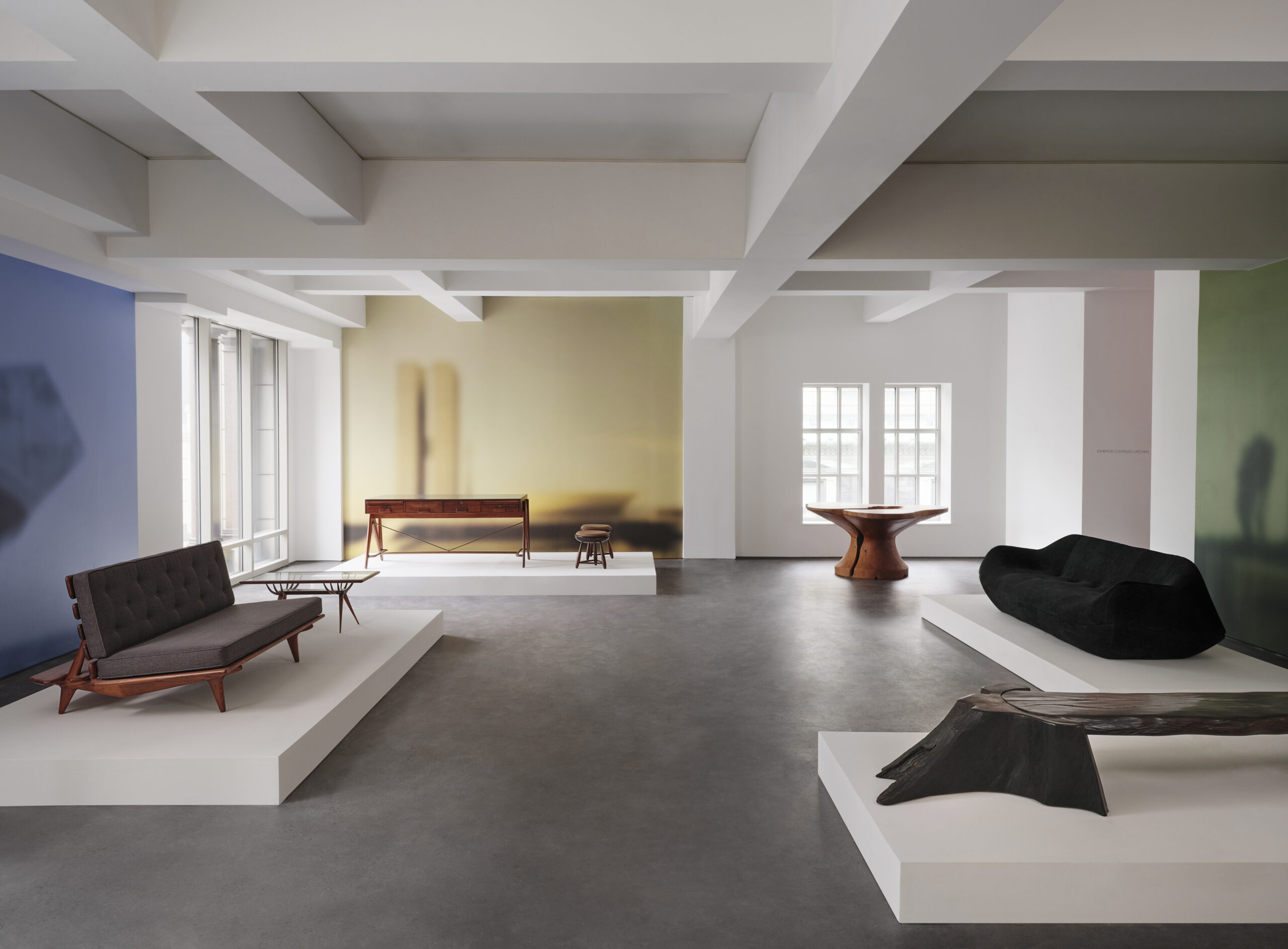The end of World War II ushered in an era of prosperity for Brazil. The period brought with it economic growth, new port facilities, revamped roads, burgeoning agriculture, new technology, and the arrival of new materials. As is often the case with changing economic and political landscapes, art and architecture followed suit. From the 1940s onward, Brazilian design adopted and adapted to the wealth of industrialization, a period currently being surveyed in Turning Tides: Designing a Modern Brazil, on view until May 31 at New York’s Carpenters Workshop Gallery.
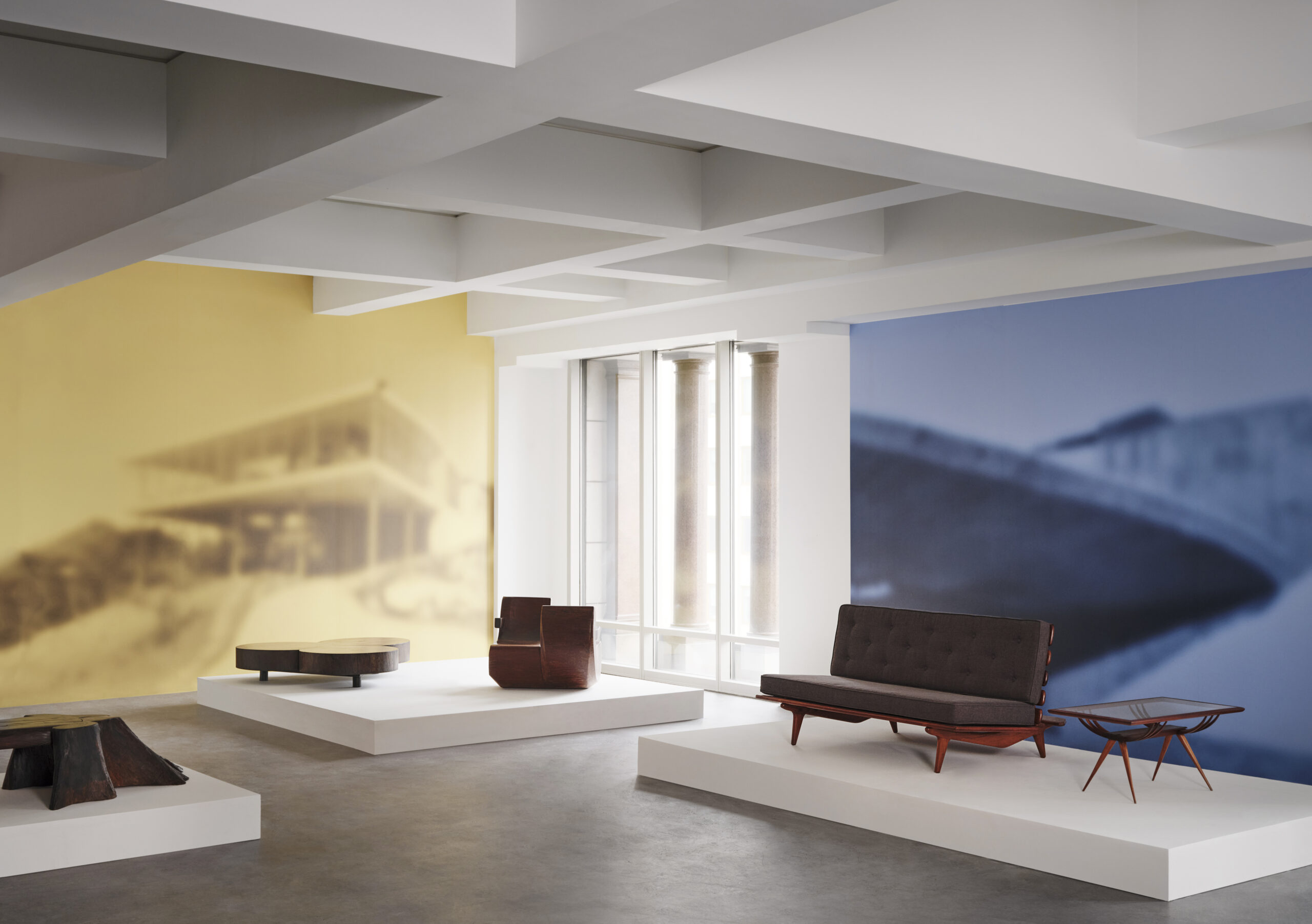
Curated by Maria Cecilia Loschiavo, the exhibition spans works from the 1940s to the present to capture 75 years of Brazilian design. This, of course, includes work by Oscar Niemeyer, namely his 1960 side tables, consisting of curving steel plates topped with glass. The pieces, shown altogether in the New York gallery, show the creative and diverse approaches to modernism, reflective of Brazil’s post-war optimism, prescient views on consumerism, and emerging aesthetics from the ‘60s.
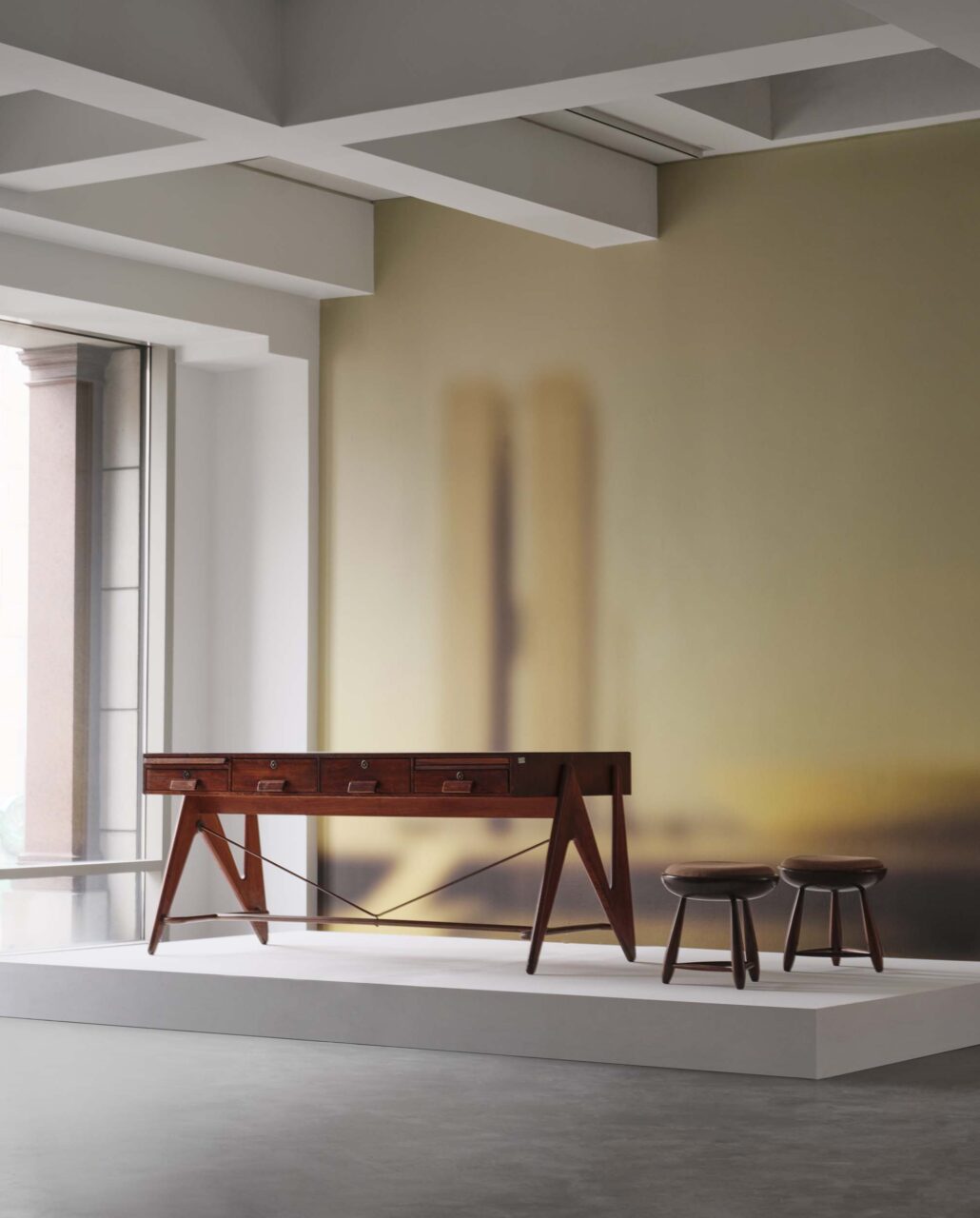
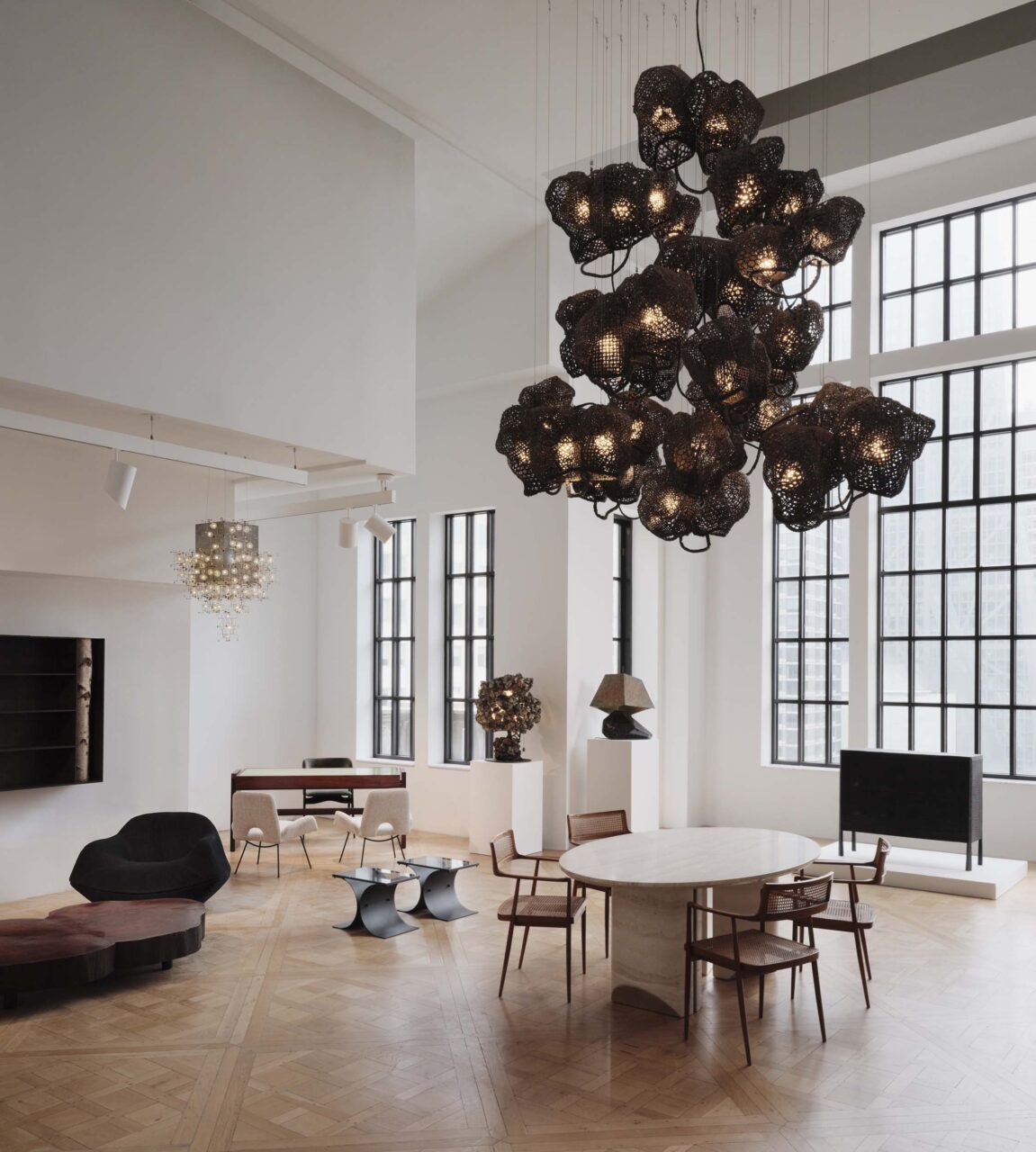
Case in point: Lina Bo Bardi, the Italian-born architect and designer who broke barriers to entry both as a woman in design as well as a communist. Turning Tides features her caviuna wood Writing Desk from 1950. The table’s minimalist form feels at home with midcentury styles, but the Z-shaped legs add a playful twist to the otherwise pragmatic construction.
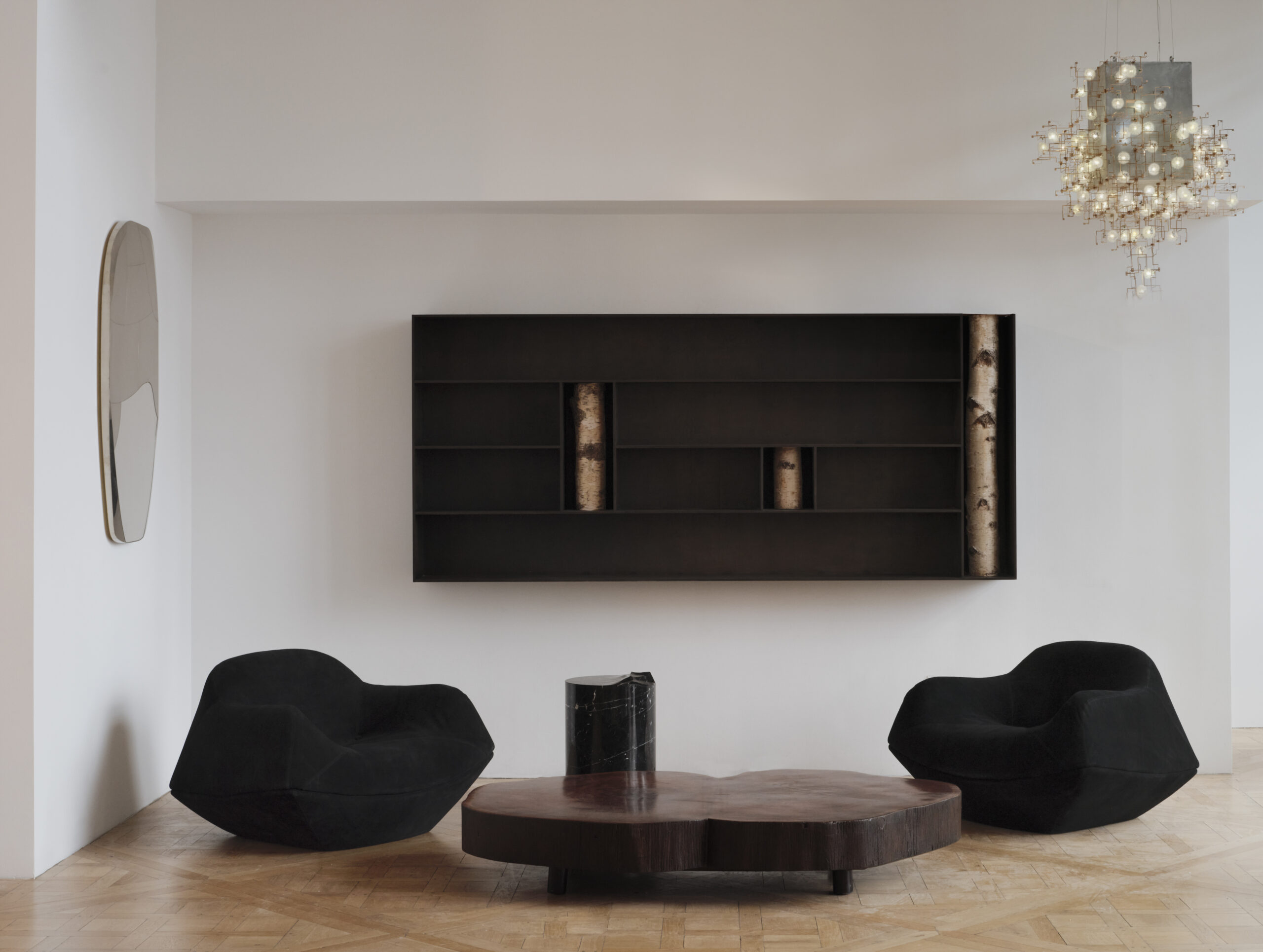
Reflecting on the evolution of Brazil’s modernism also attests to the ways the country adopted to the new era in a distinctly contextual way. Reverence to Brazilian materials, craft, and nature run through many of the works on view in Turning Tides. Joaquim Tenreiro’s Coffee Table from 1950 is made with Vinhático, a wood native to Brazil.
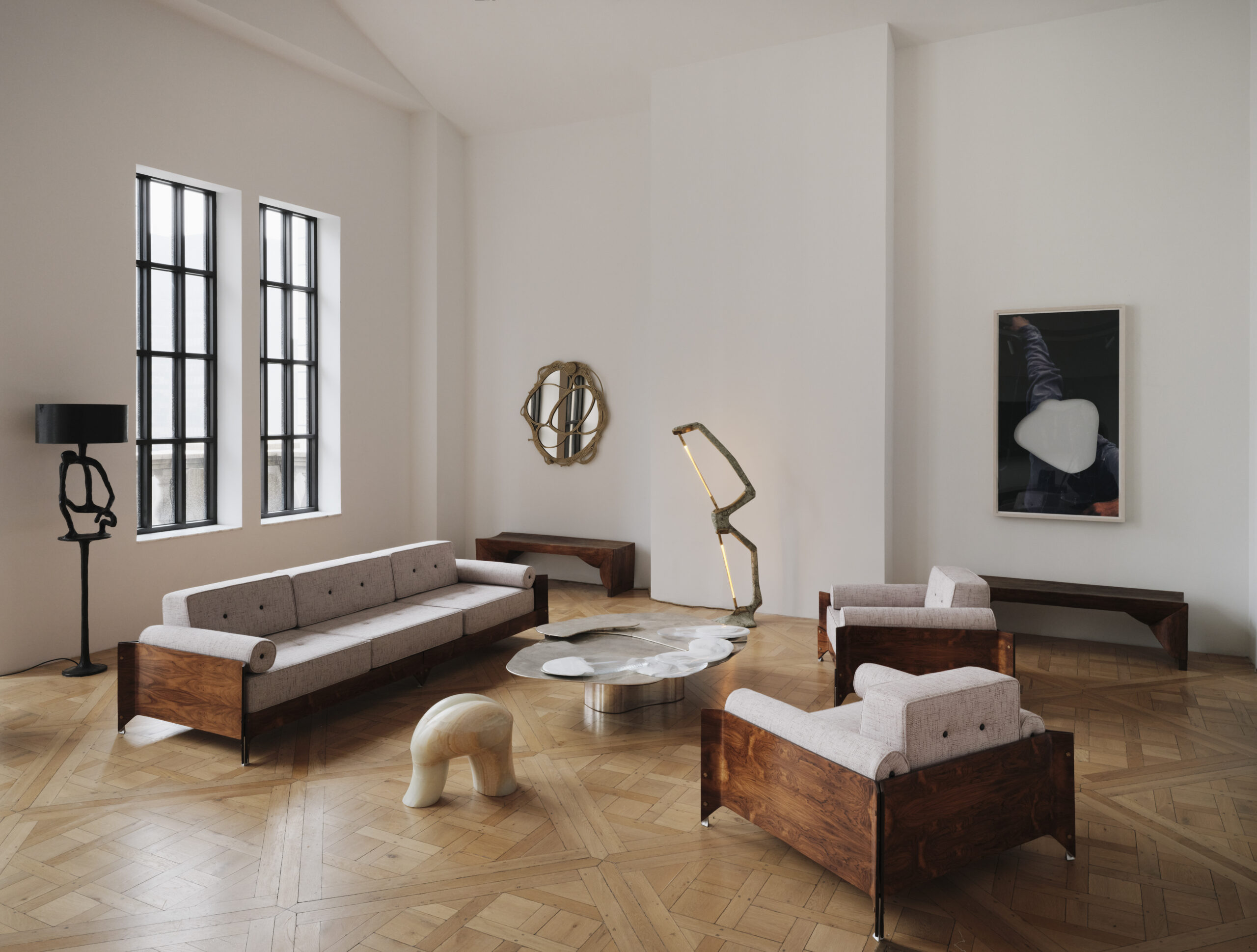
Elsewhere, the showcase features Zanine Caldas, the architect and activist who specialized in developing architectural scale models. Caldas’s 1980s dining table is made from a single Brazilian pequi wood and carved from a single tree trunk, hence its organic shape. Both form and materiality are reflective of the designer’s appreciation for nature and denouncement of consumerism. The piece falls alongside Caldas’s bench made from Imbuia wood and a repurposed tree root which forms the base of the piece. The work, like the architect’s other pieces, attests to Caldas’s early warnings about production and lumber waste.
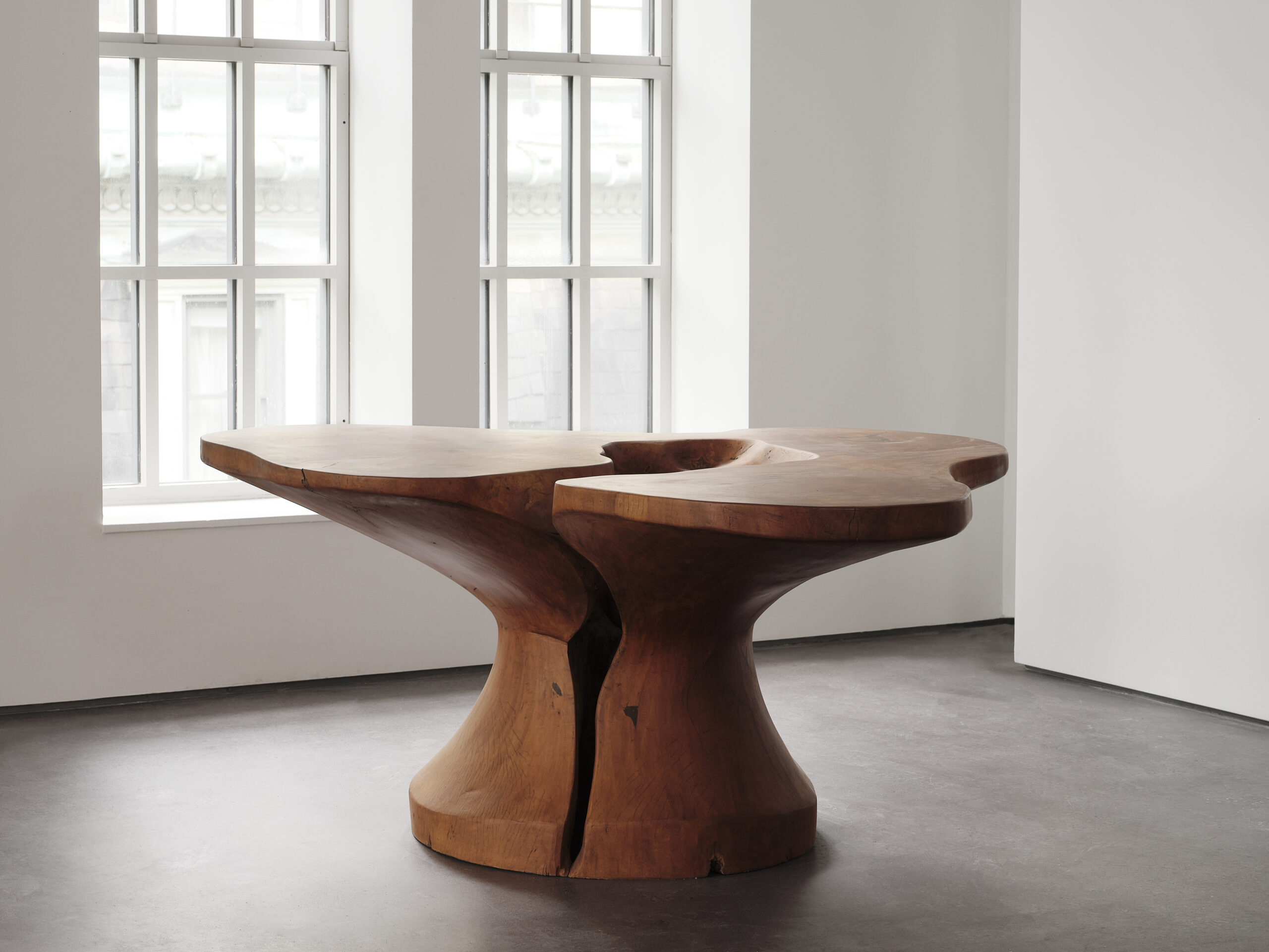
Turning Tides also includes work by architect Giuseppe Scapinelli; Sergio Rodrigues; Jorge Zalszupin; and The Campana Brothers, a São Paulo–based studio founded by brothers Fernando and Huberto Campana. The wealth of style and material represented emphasize the diversity and experimentation emblematic of Brazilian design and architecture.
Turning Tides: Designing a Modern Brazil is on view until May 31 at Carpenters Workshop Gallery.
